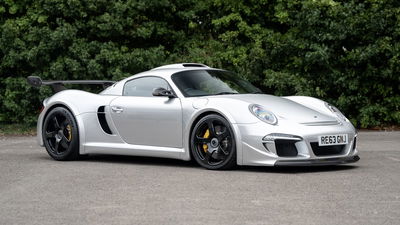2030 EV-Only Plans Were “Too Ambitious,” Says Ford

The last few months have seen a whole lot of car manufacturers start to have second thoughts about their plans to go all-electric, as EV demand has experienced a worldwide slow down. One of those companies was Ford, and the boss of its electric vehicle division has explained to Autocar the manufacturer’s reasoning.
“I don't think we can go all in on anything until our customers decide they're all in, and that's progressing at different rates around the world,” said Martin Gjaja, the chief operating officer of Ford’s Model E electric division.
He continued, saying that customer uptake of EVs had shown the plans to be “too ambitious,” and that plenty in the industry had “found this out the hard way.”

Ford’s walking back of its EV-only plans contrast its response to the former UK government’s relaxing of its 2030 petrol and diesel cut-off last year. When that was announced, Ford’s UK chair and managing director Lisa Brankin hit back, saying:
“Three years ago the Government announced the UK’s transition to electric new car and van sales from 2030. The auto industry is investing to meet that challenge.
“This is the biggest industry transformation in over a century and the UK 2030 target is a vital catalyst to accelerate Ford into a cleaner future.
“Our business needs three things from the UK Government: ambition, commitment and consistency. A relaxation of 2030 would undermine all three.”

Since then, the UK has elected a new Labour government, which promises to reinstate the 2030 cut-off, something expected to become law in the coming weeks. That will likely mean Ford – and plenty of other manufacturers – will have to differentiate their strategies between the UK and member states of the EU, where the cut-off is still expected to be 2035, and may include exemptions for synthetic fuels.
Although it’s increasing its investment in hybrids in the short term, Ford is still largely all-in on electric in Europe, with the VW-based Explorer and Capri set to hit the roads this year, and an electric Puma likely to join them soon afterwards.















Comments
No comments found.